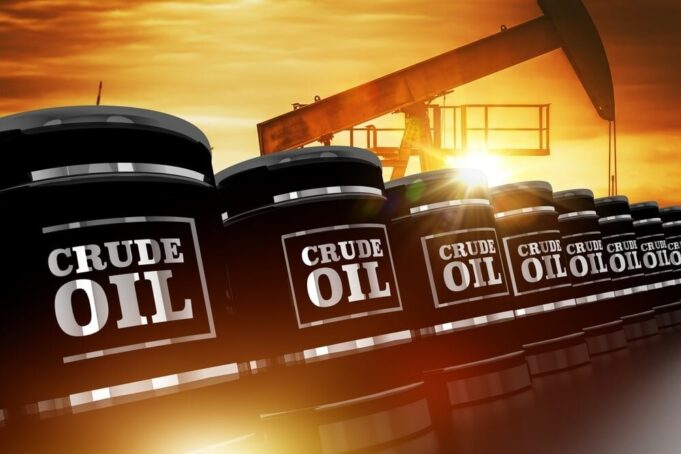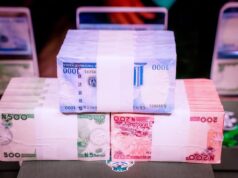The Nigerian Bureau of Statistics (NBS) has declared that the nation’s economy contracted in the Third Quarter of 2021.
The Gross Domestic Product (GDP) growth rate contracted from 5.01% of quarter two of 2021 to 4.03% in quarter three (Q3).
The NBS, however, stated that the contraction of Q2 and Q3 of 2020 has resulted to positive growth as recorded consecutively for the last three quarters of Q4, 2020; Q1, 2021 and Q2, 2021 with 0.11%, 0.51%, and 5.01% respectively.
The GDP helps to determine the structure and dynamics of an economy, which by implication measures the performance of the economy within a given period of time.
The overview of the NBS report as released on Thursday noted that Nigeria’s GDP grew by 4.03%(year-on-year) in real terms in the third quarter of 2021, showing a sustained positive growth over the last four quarters since the recession witnessed in 2020.
Output contracted by -6.10% and -3.62% in Q2 and Q3 of 2020 under the COVID pandemic. The Q3 2021 growth rate was higher than the -3.62% growth rate recorded in Q3 2020 by 7.65% points and lower than 5.01% recorded in Q2 2021 by 0.98% points, indicative of a continuous recovery.
Nevertheless, quarter-on-quarter, real GDP grew at 11.07% in Q3 2021 compared to Q2 2021, reflecting a higher economic activity than the preceding quarter.
In the quarter under review, aggregate GDP stood at N45,113,448.06 million in nominal terms. This performance is higher when compared to the third quarter of 2020 which recorded aggregate GDP of N39,089,460.61 million, indicating a year-on-year nominal growth rate of 15.41%.
The nominal GDP growth rate in Q3 2021 was higher relative to 3.39% growth recorded in the third quarter of 2020 as well as the 14.99% growth recorded in the preceding quarter.
It classified the Nigerian economy into the oil and non-oil sectors.
For the oil sector, the report said that the nation, in the third quarter of 2021 recorded an average daily oil production of 1.57 million barrels per day (mbpd).
This, it said, was lower than the daily average production of 1.67mbpd recorded in the same quarter of 2020 by 0.10mbpd and lower than the second quarter 2021 production volume of 1.61mbpd by 0.05mbpd.
It also said that real growth of the oil sector was –10.73 per cent (year-on-year) in quarter three 2021, indicating an increase by 3.16 per cent relative to the rate recorded in the corresponding quarter of 2020.
It added that the oil sector contributed 7.49 per cent to total real GDP in the quarter, down from figures recorded in the corresponding period of 2020 and up compared to the preceding quarter, where it contributed 8.73 per cent and 7.42 per cent respectively.
For the non-oil sector, the NBS said that it grew by 5.44 per cent in real terms during the reference quarter, higher by 7.95 per cent compared to the rate recorded in the same quarter of 2020 and 1.30 per cent lower than the second quarter of 2021.
“In real terms, the non-oil sector contributed 92.51 per cent to the nation’s GDP in third quarter 2021, higher from share recorded in the third quarter of 2020 which was 91.27 per cent and lower than the second quarter of 2021 which recorded 92.58 per cent,” NBS stated.
The NBS report stated that Transportation and Storage sector; Financial and Insurance sector; and Electricity, Gas, Steam and Air Conditioning Supply sector have shown strong growths during the third quarter of 2021.
Thus, the fastest growing activities in real terms during the third quarter 2021 GDP estimates were Rail Transport and Pipeline (59.93%); Metal Ores (54.92%); Air Transport (33.31%); Financial Institutions (25.50%); Road Transport (21.11%); Water Transport (16.30%) and Electricity, Trade (11.90%) Gas, Steam and Air Conditioning Supply (14.36%).
However, some of the slowest growing activities include Oil Refining (-47.83%); Crude Petroleum and Natural Gas (-10.73%); Quarrying and Other Minerals (-4.20%); Coal Mining (-4.20%); Fishing (-3.97%) and Public Administration (-0.15%).
While Road usage witnessed high demand in third quarter 2021, growth in rail transportation was occasioned by passengers’ choices to use train as an alternative to road.
Similarly, Air travel has increased with the easing of travel restrictions both domestically and foreign. Wholesale and Retail Trade continues to show strong performance over 2020 when trading activities were largely restricted due to the Covid-19 pandemic. In addition, there has been an improvement in electricity generation and distribution during the quarter as well as financial services.
On the broad sectoral performance, agriculture grew by 1.22% during the third quarter of 2021 in real terms lower than third quarter 2020 which recorded 1.39%. Industry grew by -1.63%, an improvement over third quarter, 2020 growth of -6.12% and Services accounted for 8.41% growth, also an improvement from -5.49% in third quarter 2020.
Agriculture, Industry and Services contributed 29.94%, 20.41% and 49.65% respectively to GDP. In contrast, Agriculture, Industry and Services contributed 30.77%, 21.59% and 47.64% respectively in third quarter 2020. This shows higher contribution of services in third quarter 2021 compared to third quarter 2020.
Speaking on the GDP report on Thursday in Abuja, Mr. Simon Harry, the Statistician-General of the Federation, explained that the negative GDP figures recorded in 2020 as a result of the COVID-19 pandemic had serious base effects on the GDP figures for quarters two and three 2021.
“You will recall that the contraction of quarters two and three of 2020 has resulted to positive growth as recorded consecutively for the last three quarters of quarter four, 2020 with 0.11 per cent, quarter one, 2021 with 0.51 per cent and quarter two, 2021 with 5.01 per cent.
“These base effects continued to quarter three of 2021 recording a growth of 4.03 per cent,” Harry said.
He stated that the improvement being seen in the output growth over the last four quarters depicts a steady progress made in stemming the COVID-19 pandemic and the associated negative impact on livelihood, well-being and the economy.
He said: “Globally, many countries have witnessed an improvement in economic performances compared to 2020 when Covid-19 was endemic.
“Thus, economic recovery is a gradual process that requires consistent collective efforts to improve economic activities across the institutional sectors.
“However, in Nigeria, the prospect of full recovery is glaring provided the current trend of improved economic performance is sustained in the rest of the year and beyond.
“It is important to also mention that annual GDP growth of 2021 stands at -1.92 per cent.”
- Army detains 2 soldiers over theft of cables in Dangote Refinery - April 17, 2024
- EFCC to Nigerians: Obstruct our operations, risk 5 years in jail - April 17, 2024
- Alleged N80.2bn fraud: EFCC sets to arraign Yahaya Bello April 18 - April 17, 2024










